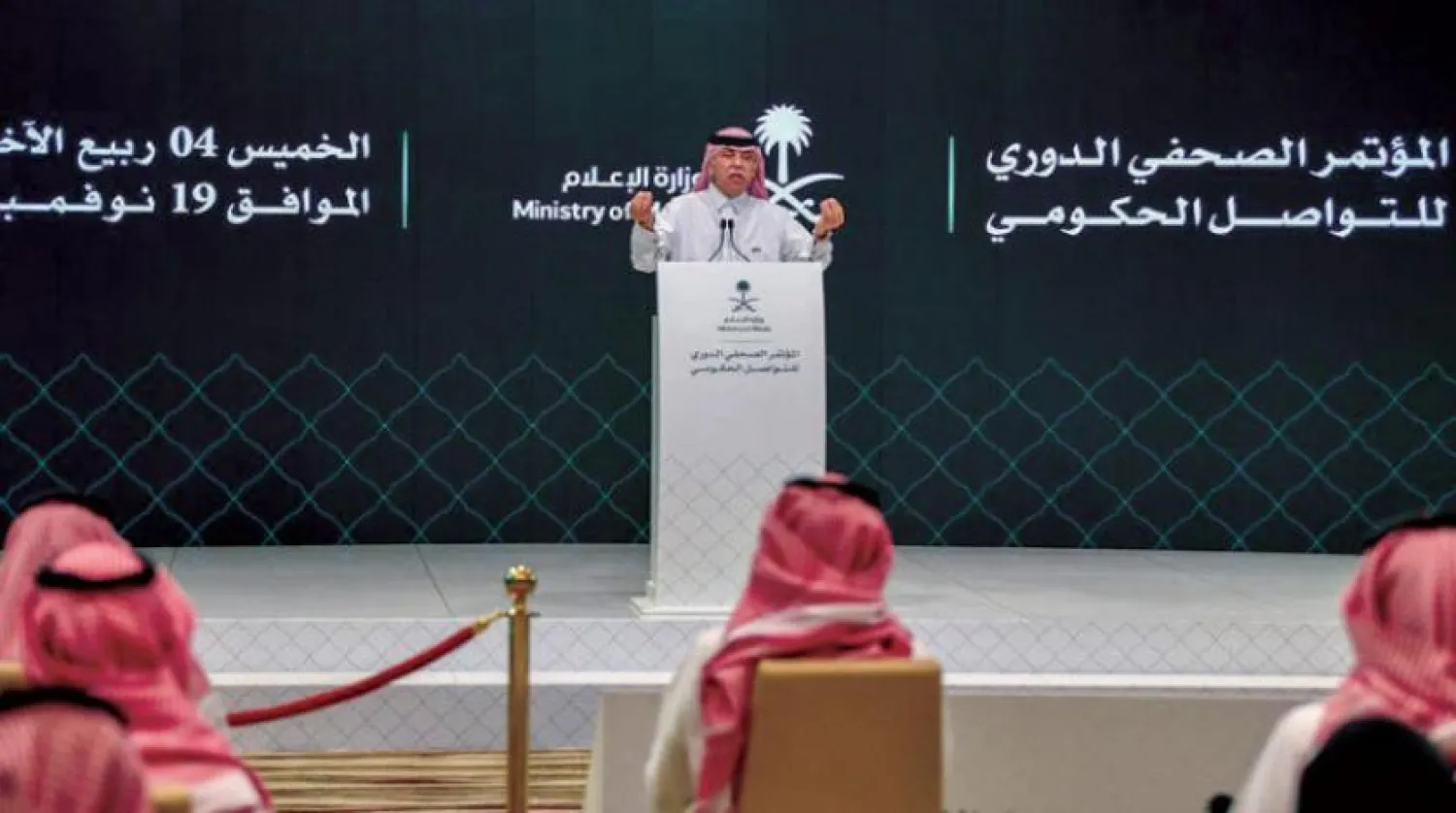Dr. Majid Al-Qasabi, Saudi Minister of Commerce and Acting Minister of Media, revealed that the anti-corruption authority has initiated 3,700 corruption cases and was seeking to eradicate corruption in line with Vision 2030.
Speaking on Thursday during the first periodic press conference, which the ministry of media launched to promote transparency, Al-Qasabi underlined the Kingdom’s fight against corruption, saying that it was based on a strong institutional approach and work method.
“This approach will continue until ensuring that corruption is eradicated and all money is returned to the citizens,” he emphasized.
The minister noted that Vision 2030 has made structural reforms that included 13 ministries, in addition to procedural improvements. He stressed in this regard that the citizen was the main focus of development.
Seventy-two laws and regulations have been amended in recent years, he said, adding that the legislative infrastructure was the basis for success in many areas.
On Saudi Arabia’s management of the Covid-19 pandemic, Al-Qasabi said: “Our investment in developing our digital infrastructure enabled us in our fight against the pandemic.”
He added that during a period of four months, 4,000 new intensive care unit beds were made available for COVID-19 cases, more than 9 million PCR tests carried out, and at least 12 million medical consultations took place.
On the economic level, the minister stressed that the Kingdom was one of the top 10 countries in the world that have best dealt with the economic repercussions of the virus outbreak. He noted that various international organizations and bodies have praised the Saudi management of the crisis.
Al-Qasabi also said that more than 80 percent of government services had been available even during the total lockdown in the first half of 2020. He also noted that Saudi ADr. Majid Al-Qasabi, Saudi Minister of Commerce and Acting Minister of Media, revealed that the anti-corruption authority has initiated 3,700 corruption cases and was seeking to eradicate corruption in line with Vision 2030.
Speaking on Thursday during the first periodic press conference, which the ministry of media launched to promote transparency, Al-Qasabi underlined the Kingdom’s fight against corruption, saying that it was based on a strong institutional approach and work method.
“This approach will continue until ensuring that corruption is eradicated and all money is returned to the citizens,” he emphasized.
The minister noted that Vision 2030 has made structural reforms that included 13 ministries, in addition to procedural improvements. He stressed in this regard that the citizen was the main focus of development. Seventy-two laws and regulations have been amended in recent years, he said, adding that the legislative infrastructure was the basis for success in many areas.
On Saudi Arabia’s management of the Covid-19 pandemic, Al-Qasabi said: “Our investment in developing our digital infrastructure enabled us in our fight against the pandemic.”
He added that during a period of four months, 4,000 new intensive care unit beds were made available for COVID-19 cases, more than 9 million PCR tests carried out, and at least 12 million medical consultations took place.
On the economic level, the minister stressed that the Kingdom was one of the top 10 countries in the world that have best dealt with the economic repercussions of the virus outbreak. He noted that various international organizations and bodies have praised the Saudi management of the crisis.
Al-Qasabi also said that more than 80 percent of government services had been available even during the total lockdown in the first half of 2020.
He also noted that Saudi Arabia would be one of the first countries to receive a vaccine against Covid-19.
rabia would be one of the first countries to receive a vaccine against Covid-19.









